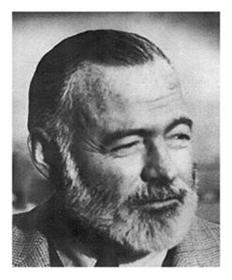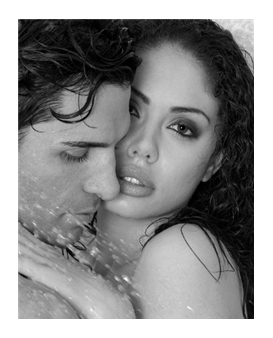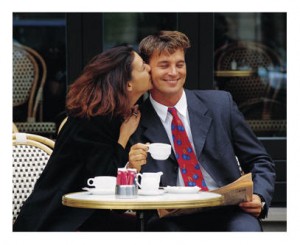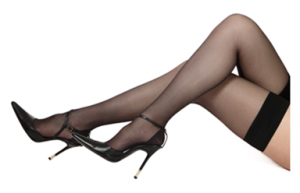A “man’s man.” When I hear that expression, I think of Ernest Hemingway. Not of his literature, but his persona: the man who lives hard, the man who loves hard, the rugged man who can live off the land, who is unafraid to fight, who womanizes without apology.
 That is the Hemingway myth, or perhaps public relations. In reality, was he in fact cavalier? A brute? Was his image carefully crafted to enhance his reputation?
That is the Hemingway myth, or perhaps public relations. In reality, was he in fact cavalier? A brute? Was his image carefully crafted to enhance his reputation?
For me, the epitome of a “man’s man” was my grandfather. He was dashing, the consummate storyteller, a performer, a ladies man, a hunter, a fisherman, a Marine who fought in the second World War and came home to live large, and to take up his place again as the head of his family.
A man’s man
Today, a “man’s man” might be interpreted in a variety of ways – possibly by the Hemingway Model, as I saw it play out authentically in my grandfather. Or, in contrast to more fluid gender roles in which men and women share the workplace and domestic tasks, as each suffers – at least in small measure – from choices we are happy to have, but that make our models of behavior more challenging.
Who does a young man emulate now?
Stereotypes, generalizations
Of course, I am dealing in stereotypes and generalizations. But there is underlying truth to both, especially as we seem to have dispensed with the Hemingway (or for that matter, James Bond) archetype… Or have we?
In searching for a definition of a man’s man today, my first thought relies on the superficial which, in itself, says a great deal. My image of manliness is based on appearance and charisma – George Clooney for example, with his smoldering looks, his cleft chin, the dash of humor and presumption of tenderness beneath the brash charm. Or perhaps you prefer the fictional Don Draper character – equally debonair as the wounded rake.
Today’s images of a man’s man offer up masculinity that is appealing to both men and women. Yet it continues to play out like so much myth. The man who is not quite attainable, the man who can be relied on in a pinch, the man who can never be “possessed.”
A woman’s woman
Is there even such an expression as a woman’s woman? What about a man’s woman?
When I search, I find only a few references. And yet I know myself to be a woman’s woman, loving and standing up for my women friends, fiercely. I respect them, I value them, I do not practice the competitiveness and cattiness that some women master. I need women in my life.
I also know myself to be a man’s woman. Desirous of a man’s company, the register of his voice, the sexual energy that sizzles between us. I am a fuller self when in a passionate relationship with a man.
Can a man’s man also adore women – deeply, and in a committed fashion? Can he do so without the sense of possession that veers into domination? Can he believe in her the way he believes in himself? Can a man’s man appreciate a woman’s woman – and love her?
A man’s woman
 What of the woman who is strong and independent, who doesn’t isolate herself from women friends when she’s in love, but flourishes in the company of her man? And what does that say if she’s fine with the expression “her” man, and with his use of “my” woman?
What of the woman who is strong and independent, who doesn’t isolate herself from women friends when she’s in love, but flourishes in the company of her man? And what does that say if she’s fine with the expression “her” man, and with his use of “my” woman?
Like the man’s man, with his appeal to women, is the successful man’s woman one who can never be fully possessed? Is this all nothing more than sexual gamesmanship? The perpetual pursuit?
Perhaps it is the approach of empty nest that has me musing on roles and relationships as I begin to visualize a different life. Perhaps it is the fact that time still remains with my younger son to influence his perception of women, even as he becomes more of a man each day. Perhaps it is maturing that enables me to consider “my” man and “my” woman not signs of possession, but possessives I’d like to hear again, endearing and sexy terms exchanged between lovers.
Cultural concupiscence?
Perhaps it is because passionate partnership is more vital to some of us, and I grant that is not the case for all. My years in France inform my approach to relationships, to sexuality, to finding no contradiction in femininity and feminism. To what is possible, with less friction, with less rhetoric, without politics, even if these very possibilities were founded on politics, at least to some degree.
I have been fascinated by the discussion of “what makes a man tick,” and equally, tiptoeing around the issues of who wants what, needs what, feels what in a relationship.
And yet I still do not have the answers I seek.
Aging, gender, choices
I have also felt relief at openly exploring the issues of aging and relationship viability, though I’ve barely scratched the surface of our fears and our yearning, our culture that makes isolation more accessible than community, and not only as we grow older.
 For some women, being on their own “fits.” I can understand, especially for those who spent decades caring for families without even a small amount of “me” time.
For some women, being on their own “fits.” I can understand, especially for those who spent decades caring for families without even a small amount of “me” time.
I also imagine contentment on one’s own is more likely when health, friends, and financial stability are not at risk. But this is an assumption on my part, or more accurately, a guess. For some, particularly those freed of an abusive relationship, single life must seem like nirvana.
Freedom following divorce
Following my own divorce, when it was finally behind me, I felt exhilarated – largely to be free of attorneys and legal papers and a sorrowful battlefield. And I floated on the air of those freeing winds – thrilled to have my name back, thrilled to live without criticism, thrilled at the option of meeting someone new, though I took my time stepping back into the world of dating. I waited until my house was in order.
Eventually, after making the usual dating rounds, that heady sense of freedom was replaced by the daily tedium of parenting, the drain of financial worries, the isolation that comes when there is no longer time or energy or money to escape, to pursue those bits of yourself that feel important.
Yet as the years pass, as I have again tasted the flavors of connection, I am more myself than ever. A woman’s woman – richer for those rare and extraordinary relationships with new women friends. A man’s woman, at my best when there is one special person in my world – for loving, for lovemaking, for all that is play, for all that is serious.
Living alone, solitude
For those women who are genuinely content on their own – I’m happy for them. I am not proposing a single definition of acceptable manhood or womanhood or how the sexes “should” relate, cohabit, or keep their own counsel. Nor is this about solitude, which is a state I am accustomed to and which neither bothers me nor defines me.
But being alone as a way of life – inside a marriage or beyond its borders – being emotionally alone when you would choose otherwise is a different matter.
 I am facing facts as I see them; I wonder how many women hesitate to admit that they would prefer to share their lives with a man. In some fashion.
I am facing facts as I see them; I wonder how many women hesitate to admit that they would prefer to share their lives with a man. In some fashion.
I wonder how many men wish they could say the same. I am not speaking of marriage, especially for those of us who’ve been there, done that. But I am speaking of one person with whom to share intimacy, laughter, and sexuality.
Motherhood
I wake early as usual; I brew coffee in the kitchen, I begin my writing, I check on my son. I have been giving him enormous freedom of late; he has shown himself capable of increasing responsibility.
His arm is thrown over his face and his pallor is off. He tells me his head is throbbing and he is dizzy, and I drop everything – calmly entering the territory of mothering.
I ask for details, I feel his forehead, I fetch Excedrin, I prepare a wash cloth and everything else on the day’s agenda is set aside, at least, momentarily. I am the mother before all else; this is a place of certainty. Physical. Immediate. An unimpeachable role. And as my child sleeps, I re-emerge – the woman, the writer, the worker, the lover, the individual.
Does motherhood trump every other imperative? What does that do to relationship?
Masculinity, femininity
I still don’t know what makes a man tick. I am wandering in my own wilderness of wondering, trying to comprehend – so I may be a better mother, a better woman, and clearer – as I move ahead into a changing life.
Yet I know the sort of masculine energy I am drawn to; it is not the Hemingway model, though it includes confidence and competence, fortitude in ways that are not my own. It includes a man’s ability to recognize feminine energy in himself, the breadth of behaviors and feelings that are his, to bask in the femininity that I would offer him, and my own diverse selves.
 To savor that complex mix in each of us. To honor it.
To savor that complex mix in each of us. To honor it.
As for femininity, it does not preclude opinions or strength, curiosity or questioning. Nor does it negate a capacity for independence. It need not be about pleasing others at our own expense.
Yet it is, for me, a pleasure in pleasing, in my own soft places, in my empathetic nature; it is my delight in a man’s smile, my desire for his touch and equally, for his appreciation – of who I am, and not only what I can do for him. And so, if I could, I would design myself a man’s man who is also a woman’s man. Does it exist? I am a woman’s woman who is also a man’s woman.
Are we afraid to speak these things because they strike us as politically incorrect, or more precisely, politically contradictory? Or are we simply afraid to make ourselves vulnerable?
You May Also Enjoy
It is very nice to have someone to share things with, to hug, to hold; but, for me, being alone would not be the worst thing in the world. I enjoy my “me” time, my quiet time. For others, that’s not such a good thing.
My father has always been called a “man’s man”… I think it is because of his rough exterior that was equaled with a rough interior… fortunately that has softened with age. A “man’s man” has never appealed to me in a mate. I’ve always wanted someone who feels emotion and is not afraid to communicate them. Above all, compassion for others including complete strangers draws me in. I could go on but I won’t hijack your comment section! But I do think the definition of a man’s man has evolved with time, but I think it rides much with the Sean Connery’s of the world… tough, powerful, and sexy.
“Tough, powerful, and sexy” – yes, I’d say that fits the bill. (With a compassionate heart beating inside his glorious chest?) 😉
BLW wrote:
For some, particularly those freed of an abusive relationship, single life must seem like nirvana. AND LATER, THIS: I would design myself a man’s man who is also a woman’s man. Does it exist? I am a woman’s woman who is also a man’s woman. Am I really so unusual?
— Amen, sister on the nirvana-now after abuse. BUT, your second comment caught my attention: Androgyny and Anima/Animus from Jung come to mind. So, not so unusual. Good theory there to support your expressed wish. Let me talk on androgyny for a moment. I have been teaching college juniors/seniors for about 26 years now. We are moving toward more androgyny. For example, young men (Gen X, Y, Jones, and now the Millennials) are free to style and color hair. Face lotion and even some aspects of “make up” are a rather ordinary choice. Metrosexual impulses mean they can care about fashion, interiors, and other cultural interests in a more open way.
I think this move in community is good for us all. I am intrigued by some of the men a half-generation behind me who occupy — rather naturally — some of the Venn diagram overlap-space of male and female.
I think a new definition of a Man’s Man might be in order. Because when I think of the definition you refer to? I cringe.
@Jane – The “man’s man” of Hemingway and my grandfather is no longer in vogue, to say the least. But what would be a “man’s man” – and does it even have a place? I still think it does, at least, as recognition that there are some men for whom their male friendships are extremely sustaining, and along with that – some behaviors which I hesitate to generalize (despite everything). So, is a millennial “man’s man” more a matter of personality or likability to men and women both, as in my description of George Clooney? There are definitely women who are not “a woman’s woman” – and those are the women I generally keep away from. I tend to like a “woman’s woman,” and I would like to be able to like an evolving definition of a man’s man.
@NoName – Androgyny and Jung, yes. But can we still retain our differences sufficient to keep us interested in each other? I hope so. Wonderful insight you bring with your university experience.
@Jane – BTW, my grandfather, while very much the early-mid-century “man’s man,” was also devoted to my grandmother, gave to his community running a musical camp for underprivileged kids for many years, and was a fine man.
A man’s man is someone that is hard to define but easy to spot. For men I’ve known and admired, it is being honourable and engaged in all aspects of your life (women, business, charity, etc.), leading by example, a wise teacher of life and skills, and a life-long student.
Ah, fear of vulnerability. Something I have been thinking about and writing about a lot. I think this fear underpins so much.
For iTunes users, there is a weekly CBC podcast called “Manthropology” that looks into what it means to be a man today with a dash of humour. Highly recommended.
Reminds me of the “most interesting man in the world” Dos Equis ads. A distinguished older gentleman is shown through film clips of deliberately varying quality to have led an extremely eventful and colorful life, packed with over-the-top heroism and adventure. There are generally two types of ads: one features the man in a bar environment giving advice or opinion about various subjects, and the other features a narrator describing the man’s distinguishing, but frequently absurd, background. Some examples include:
“If he were to punch you in the face you would have to fight off the strong desire to thank him”
“He is the life of parties he never attended.”
“His blood smells like cologne.”
“Bulls flat out refuse to fight him.”
“He once had an awkward moment, just to see how it feels.”
“His business card simply says ‘I’ll call you.'”
Now that’s a man’s man. My bari sax man fits that description. ;O)
Pass me the beer bottle, Gandalfe! (Or the bari sax.) 😉
Here’s my vote for an image of a developed man (Hint: it’s not Alan Bates. It’s the other guy.) — Check out his moves
Perfect, Wolf! Very much the Greek version of my grandfather!
And did he dance?
You bet he did!
What an interesting discussion – complex and highly personal I think. I have no idea what to call myself, but I will tell you that I consider my man to be the best of a man’s man – loving and tender and incredibly supportive, and yet full of an individual nature that loves masculine pursuits. It’s like a perfect blend. I’m quite fortunate I think. I read a quote last night by Anne Lamott who said that the best marriages are the ones where each spouse feels they got the better deal. I’m not sure how my husband feels (though if prompted I know what he would answer), but I can say for sure that I got the better deal in our relationship. I’m a lucky woman. If only there were more men like mine, I think marriages everywhere would be happier.
I hadn’t heard that quote, Christine. It’s beautiful. And what a lovely thing to say about your husband and your marriage. Thank you for sharing that.
Another framework for this question might be rigidity vs. flexibility (pun intended, if you like). For example, manly-man Ernie Hemingway was clothed in girl’s dresses in Oak Park, Illinois until he was three (by a mom who wanted a girl)… perhaps the rest was over-compensation?
One who is simultaneously a man’s man, a woman’s man, a man’s woman and a woman’s woman… now we’re talking awake, alive and unashamed human being. Our true Selves are more to the tune of our collective mind (and thus wide-ranging). We must build the individual self like a boat, into which we can then venture through the vast collective without losing our individuality—the paradox of separateness in the service of togetherness.
I once met Gregory Peck (and his Atticus in “To Kill a Mockingbird” would work nicely for me as any aspirational mix of strong and sensitive together in a male vessel)—it was at a screening of a restored “Guns of Navarone,” and he quipped to me, “It took me years to realize that this was actually a love story about me and Anthony Quinn.”
Or maybe we could leave it with “Some Like It Hot” and the totally accepting retort after the big reveal that the man a certain man loves, thinking he is a woman, is actually a man: “Nobody’s perfect” (by which we might really mean that, together, we are all perfectly the way that we are, including Lola).
I would have to say I am a mans/man and a womans/man. I want to be with a man but have the independence that I crave and need.
I love the quote Christine cited from Anne Lamott.
I really don’t know what a “man’s man” means these days. It’s a label and I find labels to be too absolute, not allowing for nuances or subtleties.
I believe at times my husband is a man’s man – he likes to attend sporting events and joke with boys, but he is also incredibly gentle and vulnerable. He paints my daughter’s toenails, gets teary eyed watching certain movies, and doesn’t care about the car he drives.
There is so much to think about from your post and the thoughtful comments. Here is my very tongue-in-cheek and yet kidding-on-the-square contribution to this topic: The definition of a manly man for me now is when I see my husband makes a substantial, visible contribution to the household chores and child rearing without me having asked, with good nature. I believe other married men will agree since I have noticed that men tend to speak of other men who do not help around the house in disdain. Or perhaps it’s just that they took pity on me.